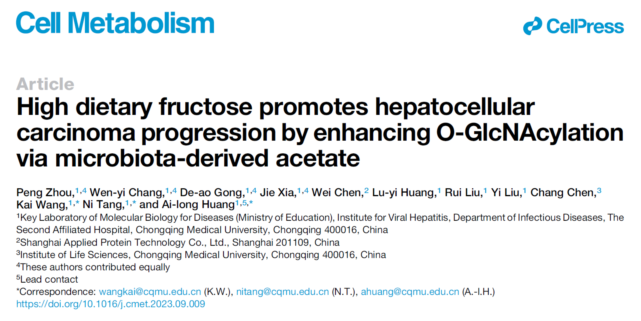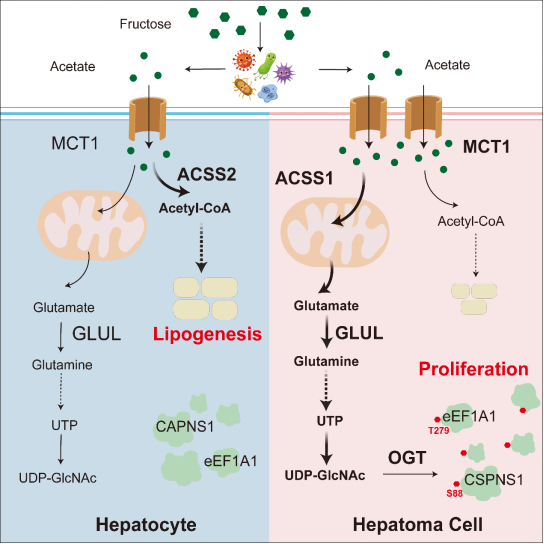Recently, Professor HUANG Ailong and Professor TANG Ni’s team from the Key Laboratory of Molecular Biology of Infectious Diseases of the Ministry of Education of Chongqing Medical University published a research papertitled ‘High dietary fructose promotes hepatocellular carcinoma progression by enhancing O-GlcNAcylation via microbiota-derived acetate’ in Cell Metabolism, which is an authoritative journal in the field of metabolism research. The team confirmed that high fructose promotes the progression of liver cancer in various mouse liver cancer models, and revealed the molecular mechanism by which acetate, a derivative of fructose which is synthesised by gut microbiota, enhances O-GlcNAcylation and promotes liver cancer proliferation. The research provides important theoretical foundations and novel perspectives for the rational use of added sugars and the prevention and treatment of metabolic diseases.

The study confirmed that high fructose intake promotes liver cancer progression in animal models. It revealed the mechanism for the first time that acetate produced by gut microbiota under stress regulates protein glycosylation through the remodelling of the hexosamine metabolism, thereby promoting liver cancer progression. This study also provides a theoretical basis and potential intervention target for the rational use of added sugar and the prevention and treatment of liver cancer.

Figure: High Fructose intake Promotes Liver Cancer Progression
The research was supported by the National Natural Science Foundation of China Regional Joint Key Programme, Chongqing Talent Programme, Chongqing Science and Health Joint Medical Research Major Programme, Senior Medical Talents Programme of Chongqing for Young and Middle-aged, and Programme for Youth Innovation in Future Medicine of Chongqing Medical University and other programmes.
Original link:
https://www.cell.com/cell-metabolism/fulltext/S1550-4131(23)00340-6